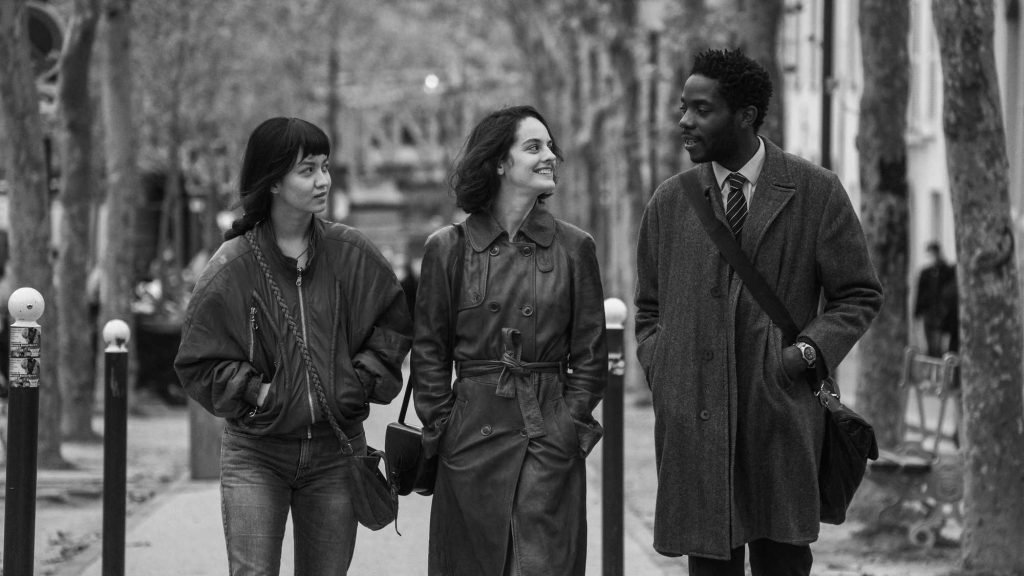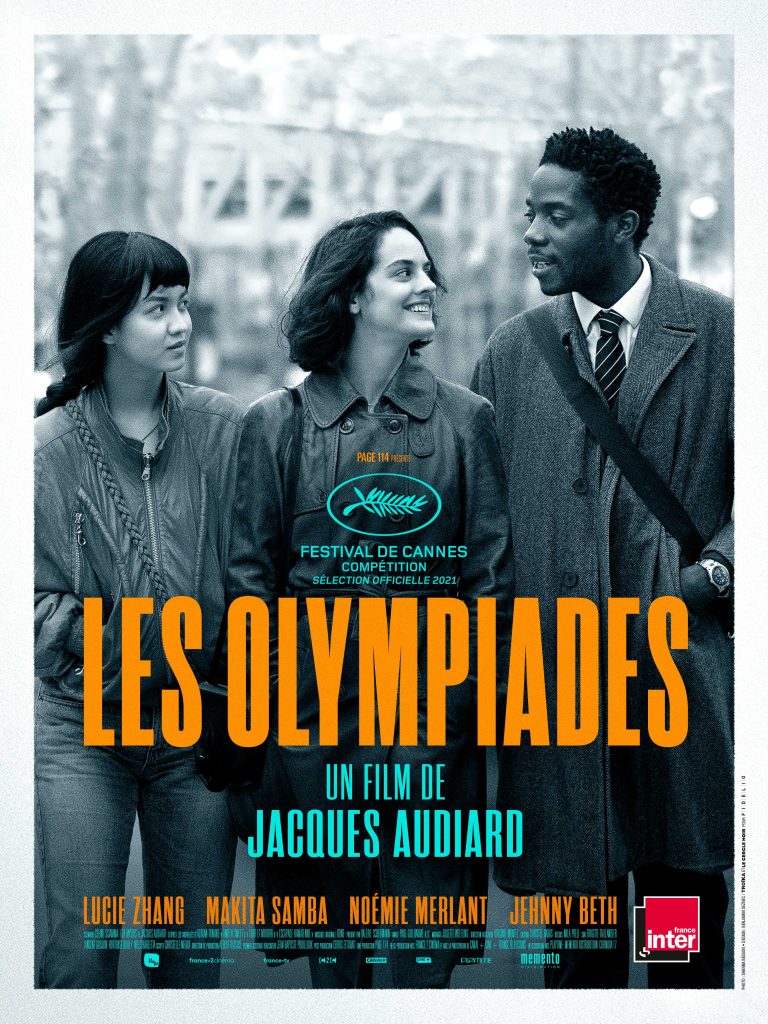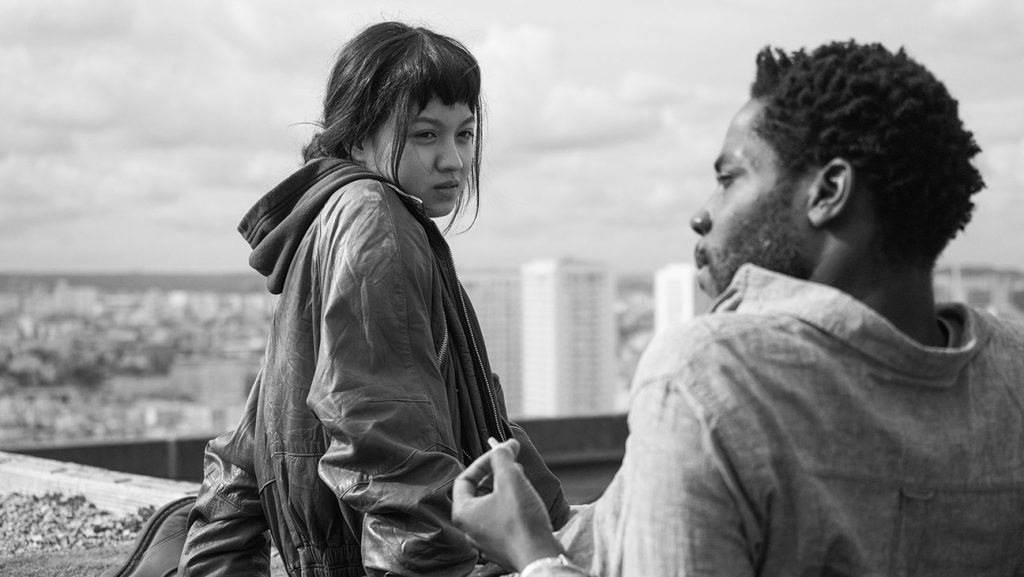In the opening moments of Paris, 13th District, we get a glimpse of the near future where a girl perches naked on a couch singing karaoke-style before her lover enters the room to continue what was presumably taking place before the audience was acting as voyeurs on this pair. Anyone familiar with French director Jacques Audiard (The Sisters Brothers, A Prophet) may find this to be a surprising beginning for a genre director who is typically more at home exploring criminality. With his latest project, Audiard collaborated with Léa Mysius (Ava) and Céline Sciamma (Portrait Of A Lady On Fire) to bring three short graphic novels from Brooklyn-based illustrator Adrian Tomine to life as a facsimile of an anthology film about modern love. Trading the original U.S. setting for the non-glamorous, titular Parisian neighborhood, the story aims to provide some deeper analysis of what happens when beautiful, single millennials jump into bed with one another. The film does not totally succeed as it may want to, but it remains an intriguing time nonetheless.
The aforementioned naked girl is Emilie (Lucie Zhang), a French-Taiwanese woman in her late 20s whose prestigious education should mean she does not have to work her dead-end call-center job. As you get to know Emilie, you understand this is somewhat by design. In a somewhat relatable turn, she shrinks away from responsibility whenever possible and tries to skate by doing the bare minimum in the expensive city by renting out the spare room of her apartment that is owned by her grandmother. While she was originally in the market for a female roommate, Camille (Makita Samba) makes an impression on her from their very first moment and they soon have sex before hammering out all the specifics of their roommate situation. The pair are bubbling with raw sexuality, but without an understanding of their scenario the situation soon becomes untenable. Emilie is the more enamored of the two and would like a consistent partner while Camille lives up to his word about not wanting anything serious. The struggle for meaningful connection is especially difficult when there is no preexisting foundation.
One of the strongest aspects of this narrative is the way in which Audiard uses the inexperience of Zhang and Samba to capture the effortless authenticity of two individuals in the modern world rather than a manufactured portrait of millennial angst. You are shown through actions how neither of these characters are without their flaws, often committing to not committing to anything that might further the messy bits of their lives. You get so caught up in their push-pull dynamic that it feels a bit jarring when the gorgeous black-and-white cinematography from Paul Guilhaume gets interrupted by the sole color scene in the narrative, announcing a change in perspective.

The more seasoned Noémie Merlant (reteaming with Sciamma after Portrait Of A Lady On Fire) enters the picture as the hopeful law student Nora. This young 30-something is sweet and relatable as she tries to start a new chapter in her life after what we are led to believe was an unfulfilling twenties. You root for her as the chipper newcomer tries to bond with her younger classmates in a way they are just not open to. This is all the more crushing when a mean-spirited rumor that she is kinky cam girl Amber Sweet (Jehnny Beth) flows like wildfire throughout the class and forces her to drop out. A turn where Nora tries to connect with Amber feels a bit too convenient, but the strength of their virtual dynamic makes you forgive some leaps in plot.
From here the plot becomes a bit more connected as Nora goes back into real estate where she just so happens to be working with Camille. The blending of multiple short stories into one overarching narrative can be a bit messy and forced, but it does capture the fluidity of the moment as the particulars of who is paired up with whom and for what reasons echoes how unstable each character feels in their lives. The core trio of Emilie, Camille and Nora offers titillation and heartache through individual character development as well as a deeper exploration of what each person means to each other at that specific time in their lives. Of course, with such a focus on these three, you never really know if you scratched beyond the surface of who Amber Sweet is when she is not being paid for her time. You may want cleaner lines between narrative threads, but anyone knows that relationships are not defined by hard lines. Audiard does not make any groundbreaking statements about the state of modern relationships, but the technical execution and performances make up for a script that could have been tightened up a bit. This is far from the best work from any of the behind-the-scenes talent, but overall exploring the lives of these characters makes for a decent time.
Paris, 13th District screened in the World Cinema section of AFI FEST 2021. The film will be distributed by IFC Films in the United States in 2022.

Director: Jacques Audiard
Writers: Jacques Audiard, Léa Mysius and Céline Sciamma
Rated: R
Runtime: 105m
Rating: 3.0 out of 5

Dillon is most comfortable sitting around in a theatre all day watching both big budget and independent movies.







